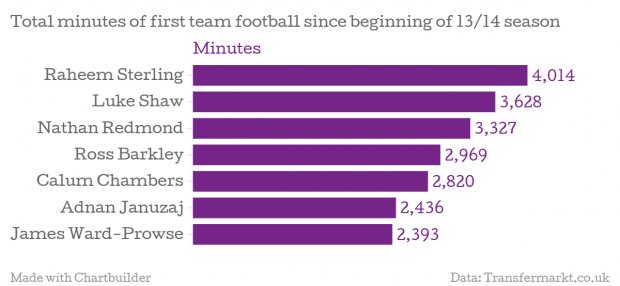| Updated:
Fitness expert Raymond Verheijen blasts “stupid” Roy Hodgson over Raheem Sterling fatigue

Roy Hodgson has made himself look “so stupid” with recent comments over players’ recovery time, said leading football fitness coach Raymond Verheijen.
In the wake of Raheem Sterling’s request to be rested for England, Hodgson questioned Liverpool manager Brendan Rodgers’ claim that players needed a two-day recovery period between matches.
Hodgson said: “I don’t think there’s medical evidence to support the ‘two-day recovery’.”
Yet Verheijen, who has previously worked with Barcelona, Chelsea and Manchester City, claimed Rodgers was “totally right” and the England manager’s comments were “absolutely stupid”.
According to the Dutch coach, dynamic young players in the mould of Sterling actually require longer recovery periods than most.
“When you are 19 you are not fully matured so your fitness level is also lower than when you are a mature man of 24 years old. You develop fatigue earlier,” he told City A.M..
“Sterling's workload is almost the same as these guys [England teammates], but his fitness level is lower. Which means he will develop more fatigue.”
Teenagers, still adjusting to the high tempo of professional first team football, will not be able to cope with the same volume of games as more developed players.
Verheijen says asking young players who are still relatively new to first team football to play regular games is akin to it to forcing them to run on a treadmill at five miles per hour until they're exhausted – and then increasing the speed to ten miles per hour and expecting them to last as long.
And Sterling’s workload is bigger than any of his young contemporaries’. The 19-year-old has played more first team football than any other teenager in the Premier League since the beginning of last season.
Including appearances in league, cup, European and international matches, Sterling has clocked 4,014 minutes of first team football. Behind him is Luke Shaw, who suffered from fitness issues this summer, Nathan Redmond and Ross Barkley, who both turned 20 last season.

(Source: Transfermarkt.co.uk)
Verheijen argues that playing with fatigue runs the risk of picking up an injury.
He said: “What is the effect of fatigue on the body? If you accumulate fatigue, you nerve system becomes slower.
“The signal from your brain to your muscles travels slower, arrives later. So you are making explosive football actions like sprinting, shooting, landing, turning with a slower nerve system. It means you are vulnerable as you have less control of your body.”
Jonathan Bloomfield from Perform2Support is a fatigue expert who has worked in professional sports for over a decade, argues a similar case.
“I don’t find it surprising at all that someone of that age is tired. We look at things in a very short term. We don’t actually look at things in the long term,” Bloomfield said.
“There is an increased sleep need through teenage year. Because they go through a growth phase the body needs between 10 and 12 hours sleep on a regular basis.
“People who become more tired make more mistakes. Their mental decision making is reduced and their reaction speed is also reduced. So if a player has a natural high intensity game, they could have more injury risk.”
Furthermore, Sterling’s particular style of play – quick, explosive actions that exploit his pace – leaves him with heightened injury risk and longer recovery time.
Verheijen, who was once Craig Bellamy's personal fitness coach, explains that sprinters often have fast “white” muscle fibres which receive less blood, less oxygen and therefore take longer to recover from intense work than slow “red” muscle fibres which receive more blood.
He said: “Explosive players recover slower compared to less explosive players and therefore need longer after the game…Roy Hodgson is denying the fact that fast muscle fibres recover slower? He makes himself look so stupid.”